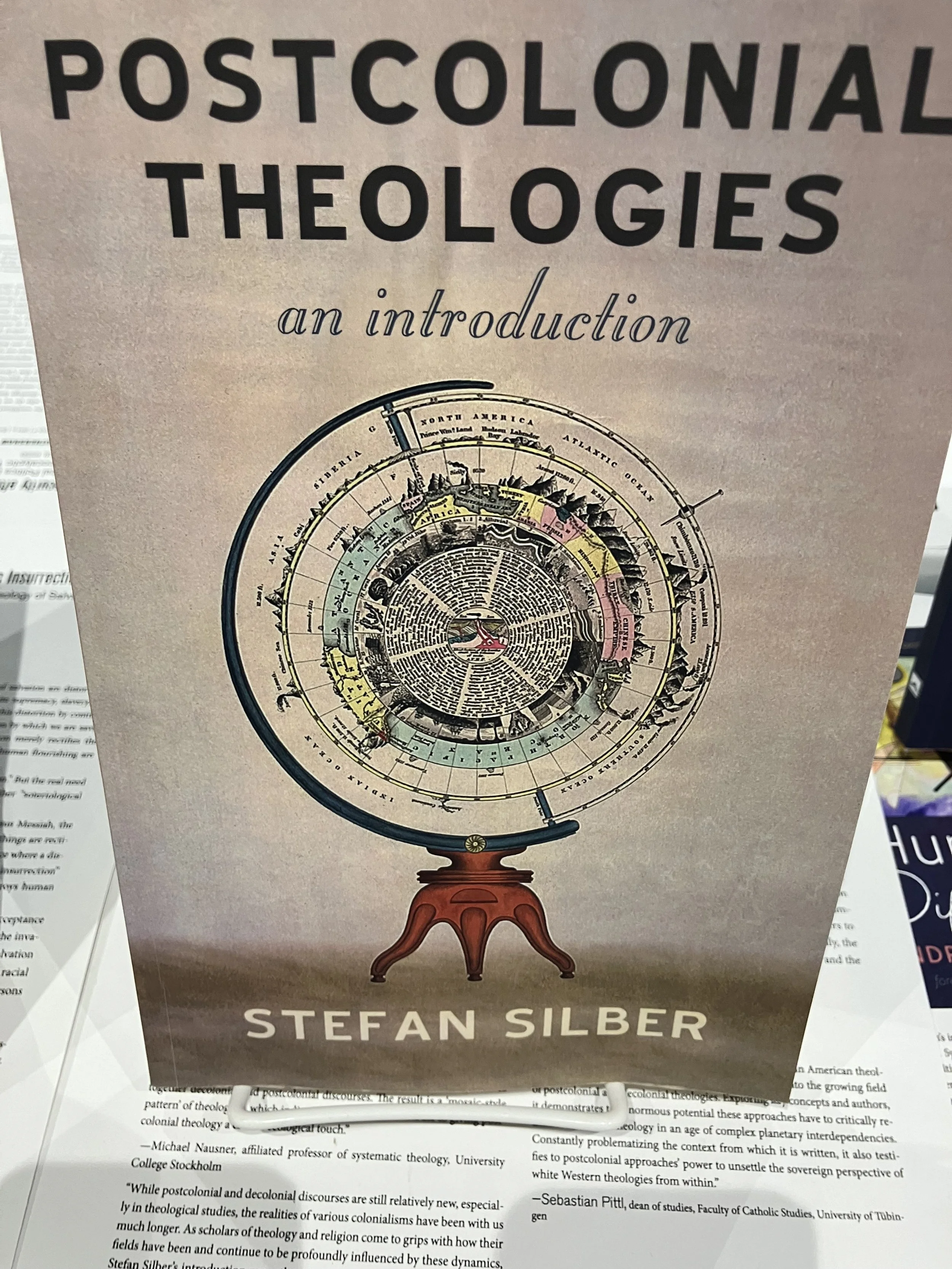Confronting the Theological Roots of colonization in North America: The Doctrine of Discovery
To bring justice and healing to the historical and ongoing harms of colonization we must recognize and repudiate the beliefs at its beginnings.
For Christians, this requires confronting a difficult truth: the justification for European Colonization came from the Church, with theology that still exists in many of our faith communities to this day. This resource provides a first step in understanding the Doctrine of Discovery — its prominent role in the history of European Colonization and its ongoing relevance.
A note for 2025: We will be adding new resources on the Doctrine of Discovery weekly on our blog, as part of our journey with an association of Baptist churches. We welcome you to visit the blog regularly to stay engaged in the conversation.
What’s in here
Denying the Full Humanity of Indigenous Peoples
When we examine the historic and ongoing harms of colonization — among them the disruption of traditional economies and lifeways, the stealing of Indigenous land, forced extinction of Indigenous languages, violence toward Indigenous women — we arrive at a common root: a denial of the full humanity of Indigenous Peoples.
Consider, as one example, these statistics from the National Inquiry into Missing and Murdered Indigenous Women and Girls (Full report is available here: Reclaiming Power and Place: The Final Report of the National Inquiry into Missing and Murdered Indigenous Women and Girls):
“Indigenous women and girls are 12 times more likely to be murdered or missing than any other women in Canada” (pg. 55)
“Indigenous women are sexually assaulted more often than non-Indigenous women, and most of the women and children trafficked in Canada are Indigenous.” (pg. 55)
The inquiry concludes that Indigenous people — and Indigenous women, girls, and 2SLGBTQQIA people in particular — have not been afforded the same rights to culture, health, security, and justice that are taken for granted by other non-Indigenous Canadians.
Another example, among many, can be found in property rights. Writing for the Fraser Institute, Ravina Bains notes:
In Canada today there are three groups of people who cannot legally own property: children, the mentally incompetent, and First Nations people who live on a reserve. …Under the Indian Act, First Nations people do not own their own land, instead it’s held for them by the government. Because of this policy, First Nations people who currently live on reserve do not enjoy the same property rights as every other Canadian. On-reserve members are unable to earn equity on their home, use it as collateral to borrow money, sell their land to whomever they choose or bequest their wealth to their children.
What is the origin of this belief and reality that Indigenous peoples can be treated as “less than” their fellow human beings?
The Scream, Kent Monkman
Connecting Past to Present
Many of us understand colonization mainly in political terms: empires leveraging power and wealth to gain even more power and wealth. This history of empires expanding is often separated in our imaginations from our notions of religious movements and motives; in this version of the story, the latter becomes a largely benevolent bystander to the exploitative, destructive actions of the former.
The Doctrine of Discovery tells a different story.
In 1493, Pope Alexander VI, for the benefit of King Ferdinand and Queen Isabella of Spain, decreed that any lands discovered by exploring parties could make claim to that land in the name of Christ, believing that the original inhabitants were not fully human if not Christian. Thus, it was the duty of exploring Christian nations to occupy the newly found land and bring its present inhabitants to conversion or submission.
(Image from the Library of Congress)
This Doctrine of Discovery justified the domination of another’s land under the guise of mission. This false belief permeated our Canadian culture, from disingenuous treaties to residential schools and continues to justify our dominant presence and culture today.
The Doctrine of Discovery is embedded in Canadian Law (particularly in how land rights are determined, The Doctrine Of Discovery and Canadian Law) and it is a part of our legacy.
Though the Doctrine of Discovery was created out of Roman Catholicism, all present-day Christians must recognize that our historic roots are intertwined with this medieval thinking and our legacy is equally tainted. The UN Permanent Forum on Indigenous Issues suggests the implementation of the title “Doctrine of Christian Discovery and Domination” to more accurately the broad scope of and impact of this set of beliefs.
If you have ever heard someone speculate that Indigenous peoples are animists who worship the creation rather than the creator, or that their high rates of incarceration are due to their lesser moral fibre, or that Indigenous kids don't do well in school because they aren't as smart as other kids these ideas are products of the Doctrine of Discovery, ideas perpetuated in order to dehumanize Indigenous People to justify the theft of their lands.
Doctrine of Discovery: In the Name of Christ (External Resource)
From the Coalition to Dismantle the Doctrine of Discovery, produced by Eclectic Reel, this documentary features interviews with Indigenous scholars and leaders. Visit their website for an accompanying study guide.
The Doctrine of Discovery and its grip on Indigenous Lands (External Resource)
Produced by Aboriginal Peoples Television Network (APTN), this short segment engages with experts to explain the doctrine and the possibility of rescinding, renouncing, or revoking it.
What do we need to change?
Make visible what has been, for too many of us for too long, invisible.
The Doctrine of Christian Discovery and Domination has operated for a long time in the background in our society and even at our personal levels of expectations. In order to dismantle it, first we have to see it. What’s preventing us from seeing it is often fears about what all might unravel if we start pulling this thread.
So we need to not only correct our misconceptions about the roots of colonization, we need to also identify what fears, or “unseen motivations” (to quote change theorist Lisa Lahey), are preventing us from moving toward truth and reconciliation.
Confront and lament the ongoing presence and harm of the Doctrine of Christian Discovery and Domination.
When we look directly at the Doctrine of Discovery it is easy from our position in history to see it as ugly and terrible and something we want nothing to do with. And yet, this is not enough. We need to be courageous enough to follow the “bricks” from first contact to the present, seeing how these beliefs continue to lay a false framework that we have built our lives on top of. Lament is a tool — provided in Scripture — that can help us in this journey.
Repentance
By making the unseen visible and lamenting the ways in which the rhetoric used in public discourse or in our own lives have been shaped by Doctrine of Discovery principles, we create the possibility for change. The theological tool here is repentance:
Turning aside what is not of God and walking a different path.
First Steps
Listen to the stories that shed light on the injustices inflicted by our laws, policies and attitudes that caused deep harm in the past and continue to hinder First Nations flourishing to a brighter future.
Respect the rights and needs of the First Nations for self-determination and governance.
Educate ourselves on the laws and social constructs that continue to block healing and wholeness
Support initiatives that offer a new justice hope and healing, and give respect and dignity to all who dwell in this land we know as Canada.
The Vatican’s 2023 Repudiation of the Doctrine of Discovery
Vatican’s repudiation of Doctrine of Discovery should be considered a first step only, say First Nations leaders
by Shari Narine, Turtle Island News
Reading List
A selection of books to take you further in this learning journey. See our expanded reading lists here.
-

The Land is Not Empty
Sarah Augustine, Herald Press
-

The Christian Imagination: Theology and the Origins of Race
Willie Jennings, Yale University Press
-

Unsettling the Settler Within
Paulette Reagan, UBC PRess
-

Settler Identity and Colonialism in 21st Century Canada
Emma Battell Lowman and Adam J Marker, Fernwood Publishing
-

Unsettling Truths: The Ongoing, Dehumanizing Legacy of the Doctrine of Discovery
Mark Charles, Soong-Chan Rah, IVP
Looking for more resources?
In the first half of 2025, we will be adding new resources on the Doctrine of Discovery weekly on our blog, as part of our journey with an association of Baptist churches. We welcome you to visit the blog regularly to stay engaged in the conversation. We will update this resource page in the future to incorporate some of those new resources!
Let’s journey together.
At Red Clover we’re keen to accompany you as you continue to move toward right, just, and whole relationships with Indigenous Peoples.
Red Clover works with churches through our ministry Healing at the Wounding Place, and offers speaking and consulting services to a wide range of groups and organizations.
Fill in the contact form to get in touch with us!
Was this resource helpful?
Support
Consider donating to help us create more resources.
















